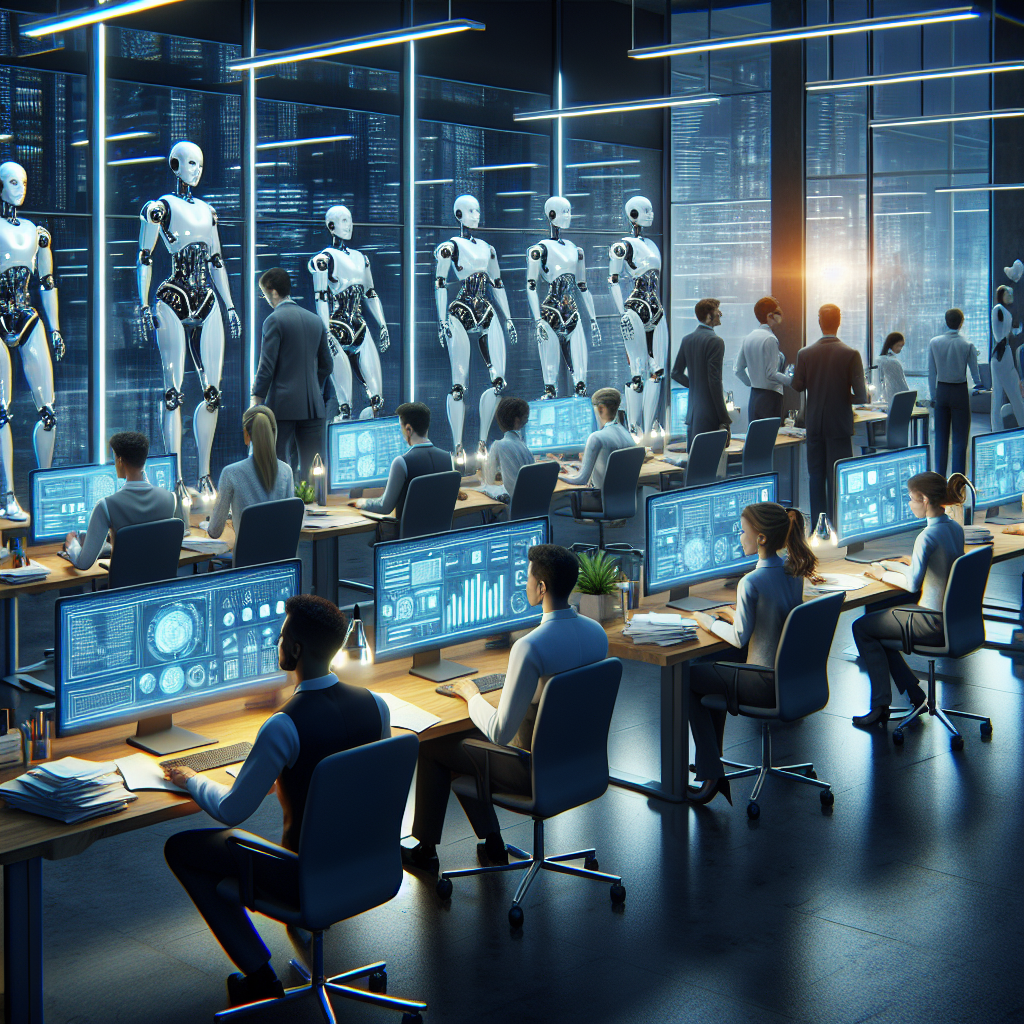The Shift Is No Longer Subtle
For years, the conversation around artificial intelligence and the labor market has been padded with hopeful caveats: “It’ll assist, not replace,” or “New jobs will emerge just like they did in past revolutions.” But a line has now been crossed — and it wasn’t crossed quietly. Top CEOs are no longer whispering about the potential for AI replacing white-collar jobs behind closed doors. They’re broadcasting it on stages, in shareholder meetings, and through official press releases.
Ford’s CEO Didn’t Mince Words
At the 2025 Aspen Ideas Festival, Jim Farley, CEO of Ford Motor Company, made headlines by declaring, “Artificial intelligence is going to replace literally half of all white-collar workers in the U.S.” This bold statement was not merely speculation; it was a data-backed warning from one of the most recognizable industrial brands in the country.
Farley isn’t alone. Executives from major corporations including JPMorgan Chase, Amazon, Fiverr, Shopify, and Anthropic have joined the chorus, suggesting a coming upheaval that will ripple through every office, every department, and every resume.
From Careful Optimism to Corporate Cold Truth
In the past, companies often avoided addressing the darker side of AI adoption. Many still do — at least in public. Privately, however, leaders have been strategizing for months on how to flatten organizational structures, automate decision-making, and reduce headcount without triggering mass panic. Those private conversations are now becoming public policy.
- Amazon CEO Andy Jassy told employees the corporate workforce “will be smaller” because of AI.
- Anthropic’s Dario Amodei warned that half of all entry-level jobs could vanish in the next 1–5 years, potentially causing U.S. unemployment to hit 10–20%.
- Fiverr CEO Micha Kaufman was blunt with his staff: “It doesn’t matter if you’re a programmer, designer, or salesperson — AI is coming for you.”
- Even Shopify’s Tobi Lütke declared that no new hires would be approved unless management could prove AI couldn’t do the job instead.
From Innovation to Elimination
Corporate innovation has always been framed as a net positive. But what happens when the innovation itself is about eliminating human roles? Yes, AI is a tool. But increasingly, it’s being used not to elevate workers — but to replace them.
If these projections hold, we could face an unusual paradox: a flood of cheap goods produced with high efficiency, but a population unable to afford them. As JPMorgan’s Marianne Lake noted, the company expects a 10% drop in operational staff due to AI tools. The story repeats across industries: do more with fewer people, and call it progress.
Supply Will Boom — But Who Will Be Able to Buy?
Many Reddit commenters are already asking the obvious: what good is supply without demand? If workers can’t earn, they can’t spend. That’s not a philosophical concern — it’s an economic formula. The post-AI labor market could be one where essentials like groceries or rent cost less than today, but are still out of reach for millions who’ve been priced out of employment.
OpenAI Responds — Kind Of
Even those at the forefront of AI development are split on the implications. Brad Lightcap, COO of OpenAI, has publicly said fears may be overstated, but also acknowledged that displacement is inevitable. IBM’s CEO Arvind Krishna has already used AI to replace hundreds of HR workers while quietly ramping up hiring for programmers.
What Happens Next?
Some say we’ve seen this before — with the loom, the printing press, and the assembly line. However, those transformations played out over decades. AI moves at the speed of code. This time, it’s not manual labor on the chopping block — it’s your accountant, your analyst, your HR partner, and your UX designer.
The optimism that new roles will emerge isn’t misplaced — but the timeline is uncertain. Pascal Desroches, CFO of AT&T, summed it up best: “We just don’t know.” Whether that uncertainty inspires innovation or unrest remains to be seen.
Read more here: https://www.wsj.com/tech/ai/ai-white-collar-job-loss-b9856259?mod=pls_whats_news_us_business_f


